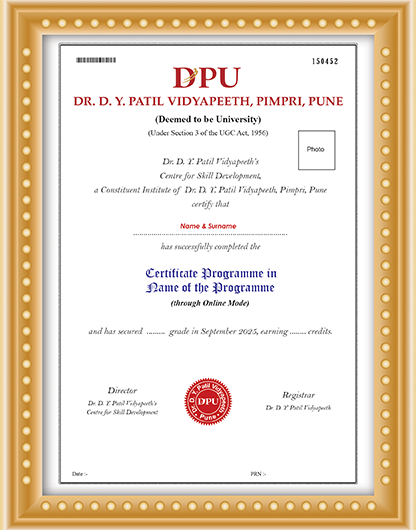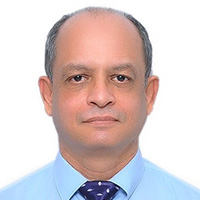
The process of arranging, planning, and managing a healthcare organization’s activities is known as operations management in hospitals. It covers both non-clinical and clinical operation management. Ensuring that all procedures are performed properly and efficiently is the primary objective of operations management in hospitals. It ignores a number of crucial facets of hospital management, including resource allocation, patient flow, personnel, and process improvement. Hospital operations management also contributes to the seamless operation and achievement of hospital objectives.
 Hospital Administration
Hospital Administration
 Marketing of HealthCare Services
Marketing of HealthCare Services
 Indoor and Outdoor Hospital Services
Indoor and Outdoor Hospital Services
 Quality Management in Healthcare Services
Quality Management in Healthcare Services
 Legal Aspects of Hospital and Health Management.
Legal Aspects of Hospital and Health Management.
The course Hospital Operations and Administration is typically designed for professionals in the healthcare industry, including hospital administrators, healthcare managers, and individuals aspiring to leadership roles in hospital operations. It is also suitable for healthcare professionals seeking to enhance their knowledge of hospital management, improve operational efficiency, and understand the complexities of running healthcare facilities.
Graduate
By 2030, the size of the hospital operations and administration market could reach multi-billion dollars, as the demand for automation, digitalization, and patient care in the healthcare sector continues to grow.
Manages overall operations, including strategic planning, budgeting, and staff management, to ensure the efficient functioning of the hospital.
Focuses on the operational aspects of clinical departments, working to improve patient care processes, resource utilization, and clinical efficiency.
Manages the day-to-day operations of medical offices or clinics, including scheduling, billing, and patient relations
Analyzes financial data related to hospital operations, helping in budgeting, forecasting, and financial planning.
Provides expert advice to hospitals and healthcare organizations on improving operational efficiency, compliance, and strategic planning.

Taught by healthcare management experts

Hands-on training and real-world simulations

Flexible online learning format

Industry-recognized certification
Rationale and Importance of Hospital Management, What is a Hospital? Evolution of Hospitals, Role of Hospital, Factors Responsible for Shaping the Role of Hospitals, Changing Paradigm in Health Care, Classification of Hospitals, Challenges of Hospitals, Looking Ahead, Hospital Organization and Administration, Duties and Skills of a Hospital Administrator.
Definitions & Concepts of Management, Planning & Decision Making, Nature of Business, Principles of Management, Organization, Planning, Controlling, Introduction to Organizational Behaviour, Perceptions & Attitudes, Motivation & Leadership,
Introduction, Definition of Primary Health Care, Rationale for Adopting Primary Health Care, Brief History of Primary Health Care, Elements of Primary Health Care, Goals of Primary Health Care, Objectives of Primary Health Care, Pillars of Primary Health Care, Principles of Primary Health Care, Strategies of Primary Health Care, Problems of Implementation of Primary Health Care Programme, Why Should Hospitals Be Involved in Primary Health Care Delivery?, What Are the Pressure for Changes on Health /Hospital Services, What is the Ideal System of Health Care Delivery?, How to Integrate Primary Health Care Into Hospital System?
Tax Based System or Social Insurance, International Scenario, Indian Scenario, Key Stakeholders, Types of Health Insurance, Cashless TPA, IRDA, CBHI, Private Health Insurance Schemes, Risks in Health Care Insurance, Some Important Issues in Health Care Insurance in India, The Road Ahead.
History, Scope, Medical Tourism Process, The International Scenario, Medical Tourism Market Drivers, Benefits of Medical Tourism, Growth Barriers of Medical Tourism, Medical Tourism: Recent Trends, Issues in Medical Tourism, Medical Tourism in India, Driving Factors of Medical Tourism in India, SWOT Analysis of Medical Tourism in India, Future of Medical Tourism in India.
Introduction & Nature, Human Resource Management, Human Resource Development, Personnel Management, Human Resource Management Roles, HR Functions in Health Care, JCI and Human Resource Management, Human Resource Accounting, Auditing and Research, Nature and Scope of Manpower Planning, Need & Benefits for Manpower Planning, Problems and Limitations of Manpower Planning, Techniques of Manpower Planning, Manpower Planning Steps, Planning Job Requirements and Job Descriptions, Human Resource Requirements in Hospitals, Human Resource Requirement in Hospitals: Manpower Forecasting, Techniques for Forecasting of Human Resource Needs, Application of Manpower Forecasting Techniques in Hospitals, Staffing Norms
Introduction, Human Resource Challenges in Health Care, Classification of High Performance Work Practices (HPWP), Facilitators of HPWP, HPWP Category 1: Organizational Engagement Practices, Organizational Engagement Practices-A Case Study, HPWP Category 2: Staff Acquisition and Development Practices, HPWP Category 2: Staff Acquisition and Development Practices-A Case Study, HPWP Category 3: Frontline Empowerment Practice, HPWP Category 3: Frontline Empowerment Practice-A Case Study, HPWP Category 4: Leadership Alignment/ Development, HPWP Category 4: Leadership Alignment/ Development- Case Study, Facilitating the Adoption of High-Performance Work Practices, Organizational Assessment-Checklist.
Need and Rationale of Training, Definition of Training and Development, Symptoms for Training and Development, Elements of Training, Objectives of Training, Training, Development and Education, Benefits of Training, Advantages of Training and Development, Changing Facets of Training, Roles and Responsibilities for the Trainers, Designing a Training Programme, Training Need Analysis, Essentials of Good Training, Training Principles, Techniques Used to Determine Training Needs, Phases in Training Process, Training and Development Techniques, Training Operations, Tips to Make a Successful Training Program in Hospital.
Management Development Programme, Principles of Management Development, Grooming Leaders, Management Development Methods, Line and Staff Responsibilities in Management Development, Newer Methods.
Front Office Operations, Clinical Department Operations, Support Service Operations, Facility Location & Layout Importance, Operations Strategy, Logistics & Supply Chain Management in Hospitals, Purchasing Operations Strategy.
Project Management Basics, Stages of Project Management, Developing Project Management Skills, Project Performance Management, Project Risk Management, Project Leadership Development, Agile Project Management at Hospitals.
Healthcare Information Technology and Role of AI in Healthcare: Concept of Information System & MIS, Electronic Health Record, Collecting and Visualizing the data, Generating reports, Role of AI in Diagnosis, Role of AI in Preventive Medicine, Machine Learning and Natural Language Processing, Benefits of AI in Administration, Diagnosis and Patient Care, Future of AI in Healthcare
Marketing, Needs/ Wants/ Demands, HealthCare Marketing, Market, Community Outreach, Communication, Health Care Products, The Market Mix- The Four Ps of Marketing, Marketing Management.
Importance of HealthCare Marketing, Marketing in HealthCare Industry, Health care Developments, Emerging Trends in Health Care Industry, Need for Health Care Marketing, Evolution of HealthCare Marketing, Reasons for Barriers to Health Care Marketing, Why Healthcare Marketing is Different? Developments Encouraging Health Care Marketing, Reasons to Do HealthCare Marketing, Future of Health Care Marketing, How to Provide Great Quality of Service-Gap Model, SERVQUAL Model.
What Is Marketing? Definition, The History of Marketing, Marketing of Services, Major Stakeholders in the Health Care Service, Dynamic Relations Among Health Care Stakeholders, The Changing Health Care Environment.
Why Do People Seek Medical Help? Personal Factors Affecting Utilization of Health Care, Other Factors, Demand-Provider Factors, Marketing Environment.
Overview: Key Psychological Processes, Stages in Change Theory.
Overview: Defining the Organization’s Purpose and Mission, Basics of Marketing Planning Process, Strategic Planning-Healthcare Marketing, Goal Setting, Strategy, Five Forces Analysis, Strategic Alliances.
Overview of Market Segmentation, Patterns of Market Segmentation, Segmentation of Consumer Markets, Market Targeting, Evaluating and Selecting the Market Segments, Differentiation Strategies, Balancing Customer and Competitor Orientation.
Overview–Marketing Channels and Value Networks, Importance of Channels, Value Network, Role of Marketing Channels, Identification of Major Channel Alternatives, Evaluation of Major Alternatives, Channel Management Decisions, Conflict, Cooperation, Legal and Ethical Issues in Channel Relations.
Emerging Marketing Techniques, Main Skills of Marketers, How Marketing is Organized in Health Care, Relationship Marketing, How Business and Marketing is Changing, Functions of Marketing Manager, Direct to Consumer Marketing, Business To Business Marketing, Internal Marketing, Concierge Services, Database Marketing, Customer Relationship Marketing, Internet Marketing, Limitations of Contemporary Marketing Techniques, Marketing Audit.
Pricing Objectives, Setting the Price, Price Setting Methods, Selecting the Final Price, Price Discounts and Allowances, Initiating and Responding to Price Changes, Value Based Pricing, Pricing Strategies Implementing, The Pricing Policy: Strategic Consideration.
Digital Marketing Strategies, Online Reputation Management, Tele-medicine Marketing, Patient Engagement Strategies, Community Outreach Events, Marketing Analytics & Predictive Modeling, Referral Marketing, Innovative Marketing using AR/ VR.
Introduction to AI & Its benefits for Marketing of Healthcare services, Personalized Patient Outreach, Chatbots and Virtual Assistants, Healthcare SEO and Search Intent Analysis, Measuring ROI and Performance Metrics
Historical Aspect, Types of OPD, Functions of OPD, Planning, Designs of Buildings, Equipment, Staffing, Workflow Process, OPD, Administrative Issues, Monitoring and Evaluation, Management Structure.
Definitions, Development and Scope, Functions, Type of Emergency Service, Planning Considerations, Equipment, Staff, Ambulance Services, Policies and Procedural Guidelines, Evaluation and Monitoring, The Workflow Process, Review (Audit) Committee.
Planning Consideration, Engineering Services, Equipment, Service Pendent, Staffing.
Definition, Admission Criteria in ICU, Types and Levels, Planning Considerations, Equipment, Staffing, Policy and Procedures, Principles of Intensive Care, Monitoring and Quality Assessment, Step Down ICU Or High Dependency Units, Physical Facilities (Obstetrical Facilities), Types, Physical Facilities, Infant Resuscitation/ Stabilization Areas, NICU, Ambient, Lighting in Infant Care Areas, Acoustic Environment.
Organization and Administration: Introduction, Evolution of Nursing Education in India, Role of Nursing Services, and Organization of Nursing Services, Duties and Responsibilities, Staffing Pattern, Norms Recommended for Nursing Staff, Role of Nurse, Nursing Care Methods, Functions of Nurse, Equipment in Ward, Monitoring and Evaluation.
Modalities of Radiology, Planning, Equipment Management, Staffing, Policies and Procedures, Radiation Safety Policy, Radiotherapy, Monitoring and Evaluation.
Functions, Components, Physical Facilities and Layout, Staff Requirement, Equipment, Workflow, Policies and Procedures, Quality Control, Monitoring, Hazards in Laboratory, Animal House.
Functions, Planning Considerations, Policies and Procedures, Embalming, Equipment’s, Safety Measures.
History, Categories and Functions, Planning, Equipment, Staffing, Policies/ Procedures, Infections Associated with Blood/ Product Transfusions, Blood Components, Autologous Transfusion, Monitoring and Evaluation of Blood Bank.
Brief History of PMR Services, Disability, Various Approaches to Prevent Disability, Rehabilitation, Physical Facilities and Designing, Staffing and Human Resource, Functions of the Department, Equipment Planning.
Important Definitions, Functions, Physical Facilities, Pharmacy and Therapeutic Committee, Hospital Formulary, Drug Distribution Service, Drug Information Service, Pharmacy Policy/ Procedure Manual, Labelling, Human Resource Management, Logistics Management in Pharmacy, Medication Incident and Discrepancy Reporting, Security, Narcotics and Controlled drugs, Steps to Prevent Pilferage and Thefts, Quality Management.
Ambulatory CARE Sensitive Conditions (ACSC), Ambulatory Care Design Principles, HPMG's Care Model of Ambulatory Care, Ambulatory Care Surgery, Requirements for Ambulatory Care Surgery, Physical Facility, Developing the Future Ambulatory Care Model.
What is Quality? Definition of Quality, Why Quality? Aspects of Quality of Care, Dimensions of Quality, Differences Between Manufacturing and Service Organizations, Some Important Concepts on Quality, Benefits of Quality, Cost of quality, Quality System, Quality Management Process, Quality Measurement.
Evolution of TQM, Quality Gurus, Total Quality Management-TQM, Quality Tools, Quality Function Deployment (QFD), Methodology: Implementing Quality, Quality Awards, Quality Management and Operations Management (OM.)
Central to the Approach Are Such Techniques, Kansei Engineering, Taguchi Methods, SIX SIGMA, Continuous Quality Improvement, Lean, NADCAP.
Definition, Philosophy of Kaizen, Important Terms, The Five Golden Rules of the Kaizen Management, The Framework for Kaizen Practice, The Kaizen Constituents, Tools and Techniques of Kaizen, Benefits of Kaizen, Kaizen-The Three Pillars, Housekeeping:- 5 S Methodology, Seven Deadly Wastes, Standardization, Kaizen and Innovation, Kaizen and “Human ware’’ Parameters, Kaizen and Total Quality Management (TQM), Kaizen and Suggestion Systems, Proposal (Teian) System vs. Traditional Suggestion Systems, Quality Policy, Quality Manager, Quality Council, Quality Circle.
What Is Service?, What is Quality in Healthcare?, Subjective and Objective Aspects of Quality, Elements: Quality of Health Care, Evolution of Health Care Quality, Sigma Gap, Challenges That Quality Poses to Health System, Assessment of Service Quality in Hospitals, Quality–PDCA Cycle and Health Care, Quality- Indicators- In Health Care Organizations, Patient Satisfaction and Quality of Care, Quality and Patient Safety, QMS, ISO 9001, SERQUAL Model, TQM in Hospitals
Introduction, Improving Quality and Whole System Reform, Dimensions of Quality in Health Care, Roles and Responsibilities in Quality Improvement, A Process for Building A Strategy for Quality, Analysis: For Building a Strategy for Quality, Mapping the Domains, Deciding on Interventions, A Self-Assessment Questionnaire for the Decision-Making Process in Quality.
Introduction, Health Care Delivery System- A Functional Description of Quality, The Relationship of Quality to Cost, A System for Continuous Quality Improvement and Cost Control, Specifications and Standards, Model for Quality in Health Care, A Model for Content Quality in Health Care.
Introduction, The Hospital as a System, Hospital Processes, Quality Monitoring Framework, Validation of Statistical Analysis, Prerequisites for Evaluation, what is Hospital Performance? Methods of Performance Measurement, Criteria and Standards of Evaluation.
Benefits of Accreditation, JCI and Accreditation, Goal of JCI Accreditation Initiatives, General Eligibility Requirements for Survey, Standards, International Patient Safety Goals (IPSG), Access to Care and Continuity of Care (ACC), Patient and Family Rights (PFR).
10.1 Assessments of Patients (AOP), Care of Patients (COP), Anesthesia and Surgical Care (ASC) Part III: Medication Management and Use (MMU), Prevention and Control of Infections (PCI), Quality Improvement and Patient Safety (QPS), Facility Management and Safety (FMS), Staff Qualifications and Education (SQE), Management of Communication and Information (MCI), Governance, Leadership, and Direction (GLD.)
Medication Management and Use (MMU), Prevention and Control of Infections (PCI), Quality Improvement and Patient Safety (QPS), Facility Management and Safety (FMS), Staff Qualifications and Education (SQE), Management of Communication and Information (MCI), Governance, Leadership, and Direction (GLD.)
What Is NABH? Organizational Structure of NABH, NABH Standards, Assessment Criteria, Preparing for NABH Accreditation-Steps, NABH Accreditation Procedure.
Changes in Health Care, Alarming Statistics, Basic Terminologies, Legislation in Health Care, Medical Council of India, Term of Office and Executive Committee, Medical Education, Medical Qualifications, Medical Register, State Medical Council, Functions of State Medical Council.
Declaration of Geneva, Hippocratic Oath, The Declaration of Helsinki, The Nuremberg Code (1947), And Ethical Principles for Medical Research Involving Human Subjects-WMA, Additional Principles for Medical Research Combined with Medical Care.
Statement of General Principles in Biomedical Research Involving, Monitoring, Record Keeping, Administration and Management, Special Considerations, General Ethical Issues, Selection of Special Groups as Research Participants, Drug Trials:- Specific Principles, Statement of Specific Principles for Human Genetics and Genomics Research, General Guidelines, Statement of Specific Principles for Research in Transplantation.
History, Principles of Medical Ethics, Criticisms of Orthodox Medical Ethics, Ethics Committees, Issues in Medical Ethics, Futility of Medical Care, Golden Rules, Indian Medical Council (Professional Conduct, Etiquette and Ethics) Regulations, 2002.
History, Definition, Importance, Boundary Violations (Bvs), Some Concepts in Boundary Issues in the Doctor-Patient Relationship, Suggestions to Prevent Bvs, Duties of R.M.P (Registered Medical Practitioner, Issues, Professional Misconduct Infamous Conduct, Action Taken By SMC for Professional Misconduct, Professional Secrecy and Privileged Communication.
History, Nuremberg Code, Legal Basis of Consent, Consent and Indian Law, Types of Consent, How Informed Consent Should be Obtained? Emergency Situation and Consent, Euthanasia, Classification of Euthanasia, Legal Status, Physician Sentiment.
Categories of Tort, Defamation, Economic Torts, Land Torts, Trespass to Land, Nuisance, Rule in Ryland’s V Fletcher, Constitutional Torts, Damages, Professional Negligence.
Need, Salient Features, Amendments-2011, Types of Donors, Punishment for Violation, Registration Process, Inspection Process, Renewal Process, Documentation, The Transplantation of Human Organs Act, 1994.
Definitions, When Pregnancies Can Be Terminated, Place Where Pregnancy Cab Be Terminated, Power to Make Rules, Power to Make Regulations, Protection of Action Taken in Good Faith, Amendment 2002, Indications for MTP, Requirement for Routine MTP, Doctor and Criminal Abortion.
Contents of the Medical Records, Medico-Legal Work, Medico- Legal Records, Medico-Legal Cases Examples, Property Rights, Medical Records in Court, Disposal of Medical Records, Death Certificate, Dying Declaration, Diagnosis of Death, The Registration of Births and Deaths (Amendment) Bill, 2012, Medico Legal Cases: Police Investigation – Giving evidence – court deliberations organ transplantation – Euthanasia (mercy killing) – Diagnosis, prescriptions and administration of drugs – Post treatment serves – Anesthesia, Surgery and sale of drugs.
The Consumer Rights, The Consumer Protection Act 1986.
Regulation of Genetic Counselling Centers, Genetic Laboratories & Genetic Clinics, Regulation of Pre-Natal Diagnostic Techniques, Central Supervisory Board, Appropriate Authority and Advisory Committee, Registration of Genetic Counselling Centers Genetic Lab & Genetic Clinics, Offences and Penalties, Miscellaneous, Towards Stronger Implementation of the PCPNDT Act, Amendments.
Drugs Technical Advisory Board, Drug Consultative Committee, Prohibition of Import of Certain Drugs or Cosmetics, Powers of Central Government to Make Rules, Offences, Manufacture, Sale and Distribution of Drugs, Penalties, Ayurvedic & Unani Drug Technical Advisory Board, Miscellaneous, Schedules.
Strikes and Lockout, General Prohibition of Strikes and Lockouts, Illegal Strikes and Lockouts, Layoff and Retrenchment, Special Provisions Relating to Lay-Off, Retrenchment and Closure in Certain Establishments, Penalties.
History, Scope and Coverage, Definitions, Doctrine of Notional Extension, Amount of Compensation, Appeals, Schedules, ESMA 1984.
Definition, Purpose, Basic Principles & Ethics, Importance of Cultural Sensitivity.
Normal Stress Reactions, Factors Influencing Responses, Impact of Trauma on Mental Health.
Active Listening, Attentive Presence, Empathetic Listening, Active Engagement, Summarization & Closure, Empathetic Response
Assessing Needs and Risks, Identifying Vulnerable Populations, Prioritizing Care.
Establishing Safe Environments, Providing Physical Comfort, Creating Emotional Safety.
Calming Techniques, Problem-Solving Strategies, Coping Skills Development.
Providing Food, Water, and Shelter, Ensuring Access to Medical Care, Addressing Immediate Concerns.
Understanding Cultural Differences, Respecting Diverse Beliefs and Practices, Tailoring Support to Cultural Needs.
Managing Stress and Burnout, Setting Boundaries, Seeking Support.
Children and Adolescents, Elderly Individuals, Persons with Disabilities.
Identifying Local Support Services, Making Effective Referrals, Collaborating with Other Agencies.
Preparing for Emergencies, Building Individual and Community Resilience, Long-term Recovery Strategies.
Based on the curriculum, here's a detailed 7-day hourly plan for the orientation program aimed at equipping learners with the skills required for hospital administration.
Objective: Learners will understand the basic structure and functions of hospital administration and the admissions process.
| Time | Topic | Activity | Outcome |
| 10:00-11:00 | Introduction to Hospital Administration | Lecture: Overview of hospital administration and leadership structures | Understand the roles and responsibilities in hospital administration |
| 11:00-12:00 | Departmental Functions | Presentation: Different departments and their functions | Identify various hospital departments and their interrelationships |
| 12:00-01:00 | Admissions Process | Tour: Admissions department and patient intake procedures | Observe and understand the patient intake and room assignment processes |
| 01:00-02:00 | Lunch Break | ||
| 02:00-03:00 | Insurance Verification | Workshop: Insurance verification process | Critically evaluate the insurance verification procedures |
| 03:00-04:00 | Room Assignment Processes | Discussion: Challenges in room assignments | Analyze the room assignment processes and potential improvements |
| 04:00-05:00 | Q&A Session | Interactive Q&A | Clarify doubts and discuss real-world applications |
Objective: Learners will gain strategic insights into healthcare marketing and patient acquisition.
| Time | Topic | Activity | Outcome |
| 10:00-11:00 | Introduction to Healthcare Marketing | Lecture: Healthcare marketing principles and theories | Understand key marketing concepts specific to healthcare |
| 11:00-12:00 | Patient Acquisition Strategies | Case Study: Successful patient acquisition campaigns | Critically evaluate patient acquisition strategies |
| 12:00-01:00 | Branding and Reputation Management | Workshop: Branding strategies | Develop branding and reputation management skills |
| 01:00-02:00 | Lunch Break | ||
| 02:00-03:00 | Marketing Analytics | Presentation: Using analytics in healthcare marketing | Apply analytical skills to evaluate marketing effectiveness |
| 03:00-04:00 | AI in Marketing | Discussion: Role of AI in modern marketing | Analyze the impact of AI on marketing strategies |
| 04:00-05:00 | Q&A Session | Interactive Q&A | Clarify doubts and discuss real-world applications |
Objective: Learners will explore and understand the functions of key inpatient departments.
| Time | Topic | Activity | Outcome |
| 10:00-11:00 | Emergency Department | Tour: Emergency department | Observe and understand emergency care processes |
| 11:00-12:00 | Surgery Suite | Tour: Surgery suite (observational) | Understand the operational procedures in a surgical environment |
| 12:00-01:00 | Intensive Care Unit | Tour: ICU | Analyze the critical care management processes |
| 01:00-02:00 | Lunch Break | ||
| 02:00-03:00 | Patient Care Management | Workshop: Patient care protocols | Develop problem-solving skills in patient care management |
| 03:00-04:00 | Case Study Review | Case Study: Critical patient management | Critically evaluate case studies and problem-solving approaches |
| 04:00-05:00 | Q&A Session | Interactive Q&A | Clarify doubts and discuss real-world applications |
Objective: Learners will understand the roles of outpatient clinics and ancillary departments.
| Time | Topic | Activity | Outcome |
| 10:00-11:00 | Outpatient Clinics | Tour: Outpatient clinics | Observe and understand outpatient care processes |
| 11:00-12:00 | Laboratory Services | Tour: Pathology laboratory | Understand laboratory operations and their importance |
| 12:00-01:00 | Pharmacy Services | Tour: Pharmacy | Analyse the role and management of pharmacy services |
| 01:00-02:00 | Lunch Break | ||
| 02:00-03:00 | Radiology Services | Tour: Radiology department | Understand the functioning of radiology services |
| 03:00-04:00 | Interdepartmental Communication | Workshop: Enhancing communication between departments | Develop communication skills for better interdepartmental coordination |
| 04:00-05:00 | Q&A Session | Interactive Q&A | Clarify doubts and discuss real-world applications |
Objective: Learners will understand quality standards, continuous improvement methodologies, and technology in healthcare.
| Time | Topic | Activity | Outcome |
| 10:00-11:00 | Quality Standards | Lecture: Quality standards and accreditation processes | Understand the importance of quality standards in healthcare |
| 11:00-12:00 | Continuous Improvement | Workshop: Continuous improvement methodologies (e.g., Six Sigma) | Apply continuous improvement methodologies |
| 12:00-01:00 | Technology in Healthcare | Presentation: Role of technology in healthcare | Develop awareness of healthcare technologies |
| 01:00-02:00 | Lunch Break | ||
| 02:00-03:00 | Quality Department Operations | Tour: Quality department (if feasible) | Observe quality management practices |
| 03:00-04:00 | Quality Initiatives Discussion | Discussion: Ongoing quality initiatives | Critically evaluate quality initiatives in healthcare |
| 04:00-05:00 | Q&A Session | Interactive Q&A | Clarify doubts and discuss real-world applications |
Objective: Learners will understand healthcare laws, patient privacy, and risk management.
| Time | Topic | Activity | Outcome |
| 10:00-11:00 | Healthcare Laws | Lecture: Overview of healthcare laws and regulations | Understand key healthcare laws and their implications |
| 11:00-12:00 | Patient Privacy (HIPAA) | Workshop: HIPAA compliance | Critically evaluate patient privacy measures |
| 12:00-01:00 | Medical Malpractice | Case Study: Medical malpractice cases | Analyze medical malpractice cases and risk management strategies |
| 01:00-02:00 | Lunch Break | ||
| 02:00-03:00 | Ethical Considerations | Discussion: Ethical issues in healthcare | Develop awareness of ethical considerations in healthcare |
| 03:00-04:00 | Legal Considerations Discussion | Discussion: Legal issues for hospital administrators | Critically evaluate legal considerations in healthcare administration |
| 04:00-05:00 | Q&A Session | Interactive Q&A | Clarify doubts and discuss real-world applications |
Objective: Learners will understand HR functions, hospital finance, and insurance management.
| Time | Topic | Activity | Outcome |
| 10:00-11:00 | HR Management in Hospitals | Lecture: HR roles and functions in healthcare | Understand the HR management practices in hospitals |
| 11:00-12:00 | Financial Management | Presentation: Financial management in hospitals | Develop an understanding of hospital finance management |
| 12:00-01:00 | Insurance Processes | Workshop: Insurance management and claims processing | Critically evaluate insurance management processes |
| 01:00-02:00 | Lunch Break | ||
| 02:00-03:00 | Cost Centre Approach | Discussion: Departments as cost centres | Analyze the cost centre approach in hospital administration |
| 03:00-04:00 | HR and Finance Interrelation | Workshop: Integration of HR and finance functions | Develop skills to integrate HR and finance functions |
| 04:00-05:00 | Closing Session | Interactive Q&A and feedback | Clarify doubts, provide feedback, and discuss real-world applications |
By the end of the orientation, learners will be able to:
This comprehensive orientation program is designed to equip learners with the necessary skills and knowledge to excel in hospital administration.

| Marks | Letter Grade | Description | Grade Point |
|---|---|---|---|
| 90 to 100 | O | Outstanding | 10 |
| 80 to 89 | A+ | Excellent | 9 |
| 70 to 79 | A | Very Good | 8 |
| 60 to 69 | B+ | Good | 7 |
| 50 to 59 | B | Above Average | 6 |
| 45 to 49 | C | Average | 5 |
| 40 to 44 | P | Pass | 4 |
| 00 to 39 | F | Fail | 0 |
| AB | AB | Absent | 0 |
Marks obtained by a student will be converted into grades at the time of result declaration.

Dr. Vishakha Oke
With 15+ years in healthcare, Dr. Vishakha is a seasoned professional ideal for mentoring and coaching...
View More
Mrs. Aparna Dixit
Aparna, a multifaceted mental health professional, champions Mental Health First Aid (MHFA) principles...
View More
Mr. Rohit Oke
Rohit's extensive experience in engineering and management positions makes him a valuable asset...
View More
Dr. Supriya Phadke
A Medical Professional and Ayurveda Doctor who has completed her Masters in Hospital Management & Administration...
View More
Mr. Shashank Divekar
Leveraging a strong foundation in marketing (21 years of industry experience), Shashank possess a specific expertise...
View MoreAns : DPUSKill programs are designed for professionals seeking to advance their skills and career prospects. They are suitable for individuals with a relevant educational background or work experience in the respective fields, as well as those looking to transition into these areas.
You will gain practical skills such as:
Ans : The course provides you with a comprehensive understanding of healthcare operations, including workflow management, staff coordination, and patient services. This knowledge helps you effectively manage daily operations, resolve issues, and implement strategies to improve efficiency and patient outcomes.
Ans : Yes, completing this course can lead to higher-level positions such as Hospital Administrator, Director of Operations, or Chief Operations Officer. The specialized knowledge and skills acquired can make you a strong candidate for advanced roles and leadership positions within healthcare organizations.